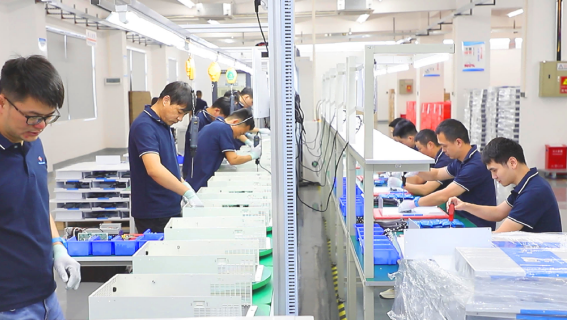As the demand for sustainable energy solutions continues to rise, off-grid solar power systems have gained significant popularity. These systems rely on essential components such as solar panels and inverters to harness and convert solar energy into usable electricity. However, one crucial element that often goes unnoticed is the battery used within the solar inverter. In this article, we will explore the specific properties required for batteries to ensure optimal performance and longevity in off-grid solar installations, as well as recommend the best batteries for this purpose.
Key Requirements for Solar Inverter Batteries
1. Fast charging capability:
Off-grid solar inverters require batteries that can be charged quickly and efficiently. This is essential to ensure a steady supply of electricity, especially during periods of low sunlight. Traditional standard batteries are not designed for fast charging, making them unsuitable for use in solar power systems.
2. Deep discharge capacity:
Battery systems for off-grid solar inverters must be able to withstand deep discharge cycles without damage. As solar energy production can vary significantly throughout the day, batteries need to be periodically discharged completely. However, standard batteries are not designed to withstand such deep cycles, making them unreliable and limiting the lifetime of the entire system.
3. High Charge Cycle Life:
Charge cycle life refers to the number of full charge and discharge cycles a battery can withstand before its overall performance degrades. Given the long-term nature of solar power systems, batteries used in solar inverters should have a high charge cycle life to ensure maximum longevity and cost-effectiveness. Unfortunately, conventional batteries often have a low to medium charge cycle life, making them less suitable for off-grid solar applications.
Best batteries for off-grid solar inverters:
1. Lithium Iron Phosphate (LiFePO4) batteries:
LiFePO4 batteries have become the top choice for off-grid solar installations due to their exceptional performance and longevity. These batteries can be charged at high rates, can be deep discharged without damage and have a remarkable charge cycle life. In addition, LiFePO4 batteries are lightweight, compact and require minimal maintenance, making them an ideal choice for renewable energy systems.
2. Nickel Iron (Ni-Fe) batteries:
Ni-Fe batteries have been used in off-grid solar applications for decades, primarily due to their ruggedness and durability. They can withstand deep discharges without compromising performance and have a significantly longer charge cycle life than conventional batteries. Although Ni-Fe batteries have a slower charge rate, their long-term reliability makes them a popular choice for off-grid solar inverters.
3. Lithium-ion (Li-ion) batteries:
While Li-ion batteries are commonly known for their use in consumer electronics, their exceptional performance characteristics also make them suitable for off-grid solar applications. Li-Ion batteries offer fast charging capabilities, can withstand deep discharges and have a reasonable cycle life. However, compared to LiFePO4 batteries, Li-Ion batteries have a slightly shorter lifespan and may require additional maintenance and monitoring.

Conclusion
Off-grid solar inverters require specialized batteries that can meet the demanding requirements of fast charging, deep discharges, and a high charge cycle life. Traditional batteries fall short in these aspects and are, therefore, not suitable for sustainable energy applications. LiFePO4, Ni-Fe, and Li-Ion batteries have proven to be the best choices for off-grid solar power plants, offering superior performance, longevity, and reliability. By selecting the optimal battery technology, users can ensure their off-grid solar installations are efficient, cost-effective, and capable of delivering clean energy for years to come.
Post time: Aug-05-2023